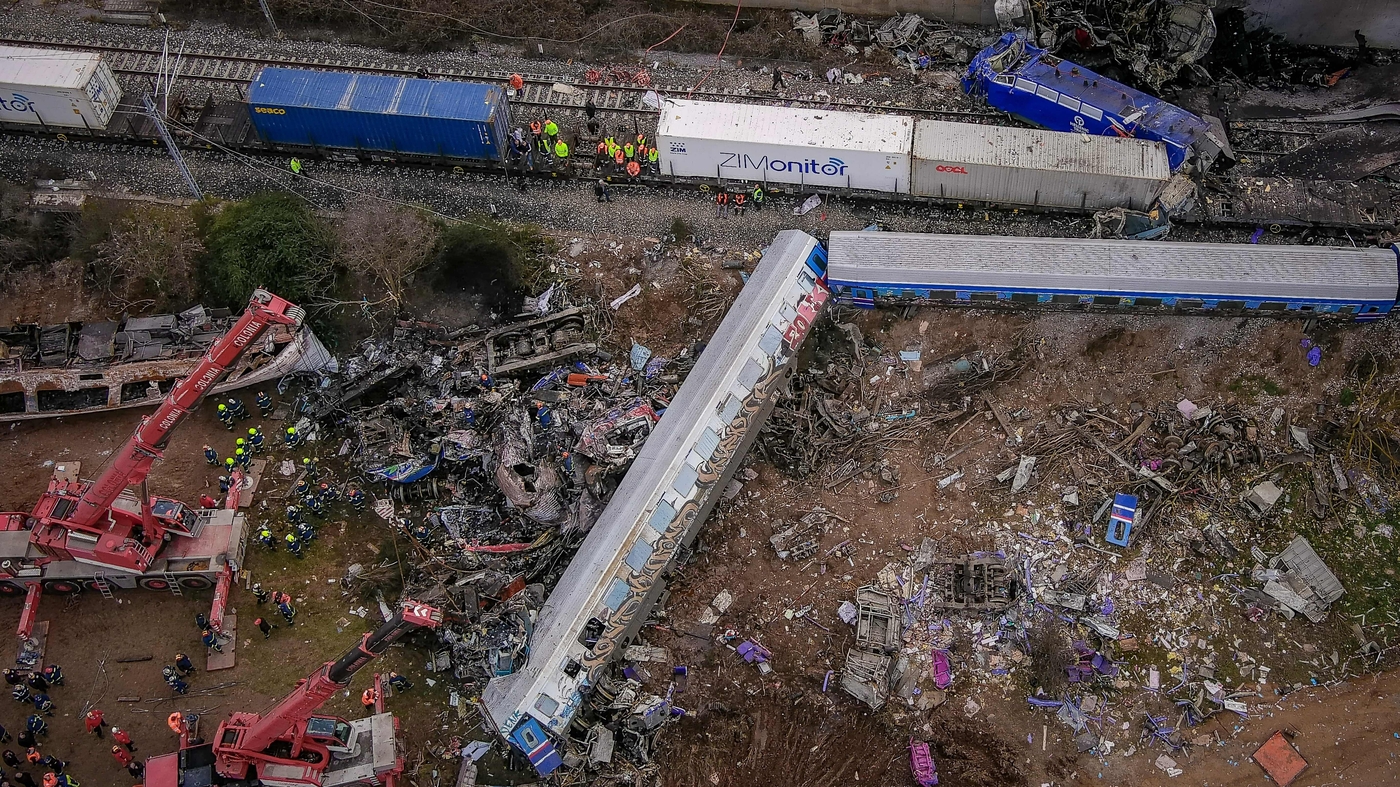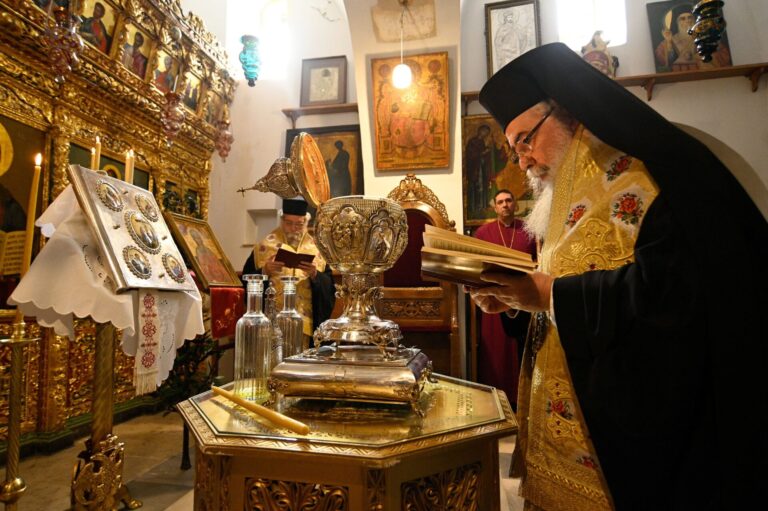Man who admits responsibility for disaster that killed at least 57 people is now due in court on Sunday
A court appearance for the stationmaster involved in Greece’s worst-ever train disaster has been postponed as the country braces for more mass protests over the crash that killed at least 57 people.
Thousands of people have protested across the country since Tuesday’s collision between a passenger train and a freight train, with public anger mounting over government failure to manage the rail network.
More protests were expected in several big cities on Saturday and a large rally of students and railway employees was set for Sunday in Syntagma Square, Athens, next to the Greek parliament.
Sophia Hatzopoulou, 23, a philosophy student in Thessaloniki, said: “We can’t watch all this happen and remain indifferent.”
The train was carrying students returning from a holiday weekend, and at least nine young people studying at Aristotle University of Thessaloniki were among the dead, while 26 others were injured.
The stationmaster at Larissa, central Greece, has admitted responsibility for the accident, in which the two trains ran along the same track for several kilometres.
He was due to appear in court on Saturday, where he could face charges of negligent homicide, but would now appear on Sunday, his lawyer said. He could face life in jail if found guilty, but his lawyer has argued that other factors were at play.
“In the case, there are important new elements that need to be examined,” his lawyer, Stefanos Pantzartsidis, said.
The public broadcaster ERT reported the stationmaster had been appointed to the post only 40 days earlier after training for three months.
The man, whose identity has not been made public, was apparently alone at the station without a supervisor, according to the Kathimerini newspaper, despite it being a holiday weekend with high demand and heavy rail traffic.
Legal sources suggested investigators were considering criminal charges against managers of Hellenic Train, the operator that took over network operations in 2017.
Police seized audio files and other items during a raid on Larissa train station, a judicial source told Agence France-Presse.
Thousands gathered outside Hellenic Trains’ Athens headquarters to protest against the decades of failure to improve rail network safety, despite close calls in past years.
Hundreds of people observed a minute’s silence outside the Greek parliament, but riot police and a small group of protesters later clashed in central Athens.
At the rally in Syntagma Square, officers fired teargas and stun grenades at protesters who threw stones and molotov cocktails, an AFP reporter said.

A similar number demonstrated in Thessaloniki – Greece’s second largest city – where police had reported clashes on Thursday with people throwing stones and petrol bombs.
Greece’s train services were paralysed on Thursday by striking workers arguing that successive administrations’ mismanagement of the network had contributed to the fatal collision. That strike continued into Friday and was due to last another 48 hours.
The clean-up operation continued on Saturday with technical crews sifting through scattered debris and removing train carriages from the site.
Roubini Leontari, the chief coroner at Larissa’s general hospital, told ERT on Thursday that more than 10 people were still unaccounted for, including two Cypriots.
The Greek prime minister, Kyriakos Mitsotakis, who is seeking re-election this spring, has blamed the disaster on “tragic human error”.
But rail unions say safety problems on the Athens-Thessaloniki railway line had been known for years.
For decades, Greece’s 1,580-mile (2,550km) rail network has been plagued by claims of mismanagement, poor maintenance and obsolete equipment.
After the transport minister resigned on Wednesday, his replacement, Giorgos Gerapetritis, vowed a “complete evaluation of the political system and the state”.
Safety systems on the line are still not fully automated, five years after the state-owned Greek rail operator TrainOSE was privatised and sold to Italy’s Ferrovie dello Stato Italiane and became Hellenic Train.
Source : The Guardian







